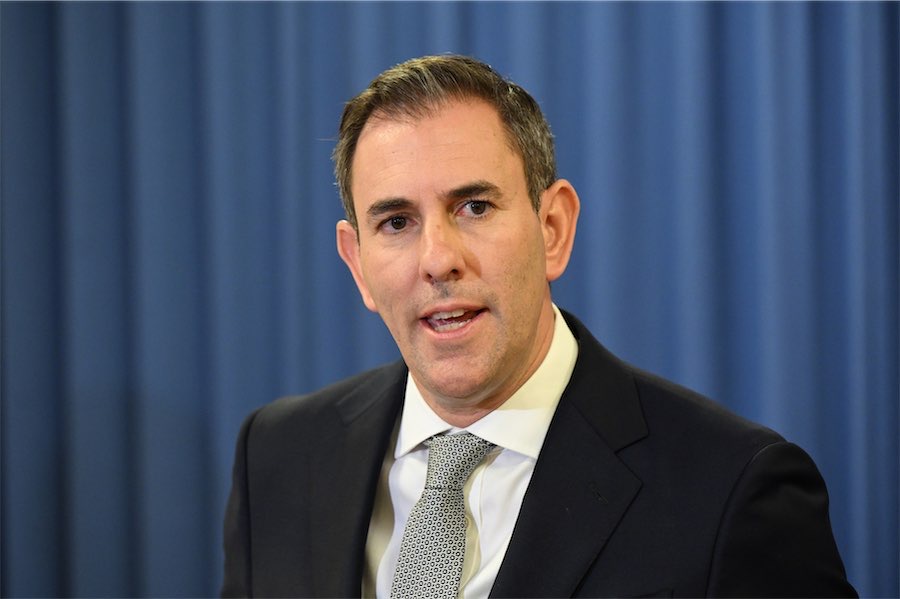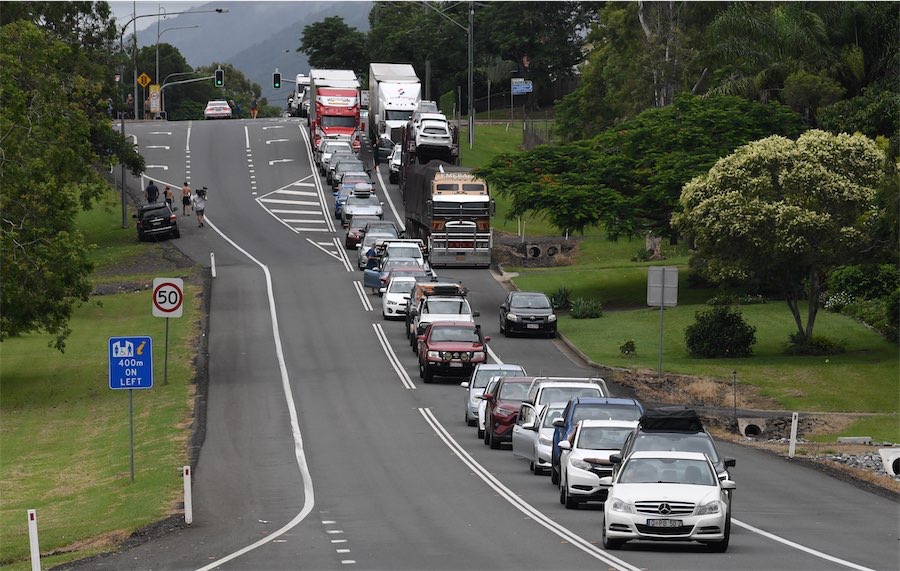
By Michelle Grattan in Canberra
Treasurer Jim Chalmers has distanced himself from the strident attack his one-time boss Wayne Swan launched on the Reserve Bank, which the former treasurer accused of “putting economic dogma over rational decision-making”.
Swan, who is national president of the Labor Party and was treasurer in the Rudd and Gillard governments, said on Friday the Reserve Bank’s stance was “counterproductive and it’s not good policy”.
“If you look at markets, they’re all forecasting rate drops,” he said. “They’re going down around the world.”
The Reserve Bank continues to reiterate that it is not intending to bring down rates any time soon.
Chalmers, who was accused of shifting blame to the bank when he said a week ago that rate rises were “smashing” the economy, said Swan had gone “much further than I have”.
“I’m making a factual point borne out by the national accounts [of last Wednesday],” he told the ABC on Sunday.
“I don’t second guess the Reserve Bank in the way that Wayne has. My focus is on working with Governor Bullock.
“I’ve got a lot of respect for Governor Bullock. Our objectives are actually aligned to get on top of this inflation challenge, and we need to do that without ignoring the risks to growth,” he said.
Reserve Bank Governor Michele Bullock has been particularly blunt in saying the bank will do whatever is needed to reduce inflation to the 2-3 per cent target range, including hiking rates again if necessary. Inflation was 3.8 per cent in the June quarter.
Bullock has been equally forthright in spelling out the implications for some home buyers of the present fight against inflation.
She said last week that about 5 per cent of owner-occupiers with variable-rate loans were in “a particularly challenging situation”.
These people had to make “quite painful adjustments to avoid falling behind on their mortgage repayments.
“This includes things like cutting back on their spending to the more essential items, trading down to lower-quality goods and services, dipping into their savings and working extra hours.
“Some may ultimately make the difficult decision to sell their homes,” she said. Lower-income borrowers were “over-represented in the group of people who are really struggling”.
The latest GDP figures, showing the economy crawling, has added fuel to the controversy over the Reserve Banks’s hardline stand.
Chalmers off to China
Meanwhile, Chalmers on Sunday confirmed he will visit China later this month for the Strategic Economic Dialogue. This will be the first visit by an Australian treasurer in seven years.
For Chalmers it will be a fact-finding visit, especially to get an assessment of the growth prospects of the Chinese economy, which have significant implications for Australia.
There is general doubt over the viability of China’s 5 per cent growth target, and the iron ore price has fallen sharply over the course of this year.
Chalmers said his department had modelled a scenario in which a sustained drop in the price of key commodities cost the budget “something like $4.5 billion”.
The relationship with China was “full of complexity, but also full of opportunity, and I want to help the government maximise that opportunity for the Australian people, workers, businesses, employers, investors”.
Chalmers said the talks gave an opportunity to work through issues such as foreign investment and trade restrictions and compare notes on how the two countries saw the global economy.
China has lifted most trade restrictions on Australia, although they remain on lobster.![]()
Michelle Grattan, Professorial Fellow, University of Canberra. Republished from The Conversation.
Who can be trusted?
In a world of spin and confusion, there’s never been a more important time to support independent journalism in Canberra.
If you trust our work online and want to enforce the power of independent voices, I invite you to make a small contribution.
Every dollar of support is invested back into our journalism to help keep citynews.com.au strong and free.
Thank you,
Ian Meikle, editor




Leave a Reply